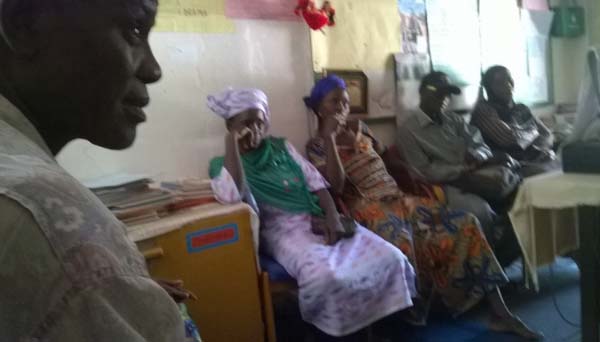
He was speaking during a sensitization training session for Mothers Clubs and school heads at Kabafita Upper Basic School in Brikama.
He told the meeting that the collaboration between Saamasang and MOBSE is only aimed at promoting quality education, which could not be achieved in the absence of the mothers.
Sillah said his federation is starting by supporting the clubs with a standard constitution, and to register with the AG’s chambers in order to make the clubs a legal organization.
“This will be followed by a five-day training session on group management and livelihood skills such as tie and dye, as well as soap/Omo making for the mothers clubs,’’ he said.
Besides that, Mr Sillah said an amount of D5,000 would also be given to each club to serve as seed money, and the federation would continue to monitor the activities of the various clubs in the ten schools, and render any support where necessary based on the interest of the children, their parents and communities.
All the communities visited have expressed their profound gratitudeand sincere thanks to Saamasang Federation management and MOBSE,for putting a smile on their face, rendering all their efforts to get a standard constitution for their clubs in order to register with the Attorney General’s Chambers, making it a legally binding organization.
‘’The aim of the sensitization is to brief the club executives on the rationale for establishing mothers’ clubs in schools and Saamasang Federation’s intervention in making it possible in their schools,’’ he said.
Sorry Ceesay, in his address, told participants that their presence is a clear manifestation of their commitment and devotion in making a difference in the lives of the Gambian child, parents and their community.
This means that the setting up of mothers’ clubs to help in school improvement is not a policy mistake, but a rewarding endeavour, he added.
He thanked Saamasang Federation for their collaboration and genuine support to RED2, the education policy 2004-2015 and the poverty reduction strategy paper (PRSP).
Mr Ceesay said poverty is a major threat to children’s learning, educational access and achievements.
The establishment of child friendly schools/mothers’ clubs, Mr. Ceesay emphasized, was spelt out as an intervention and, therefore, highlighted in the 2004-2015 Education Policy objectives.
“The transfer of technical knowledge and resources alone has been observed as no solutions for the alleviation of mass poverty in which women are most vulnerable, thus the involvement of poor women parents to participate in the education of their own children is crucial, but requires support to empower them with,” he further stated.
The basic knowledge in group management and livelihood skills is in order for them to be able to cope with the rapid changes, and to help them mobilize their own potentials to make better use of the available resources to improve their livelihood, according to Mr. Ceesay.
The Regional Education Directorate II in its mandate to implement policy and programmes at regional level, considered the training of the child-friendly schools/mothers’ clubs in the above-mentioned areas as a prerequisite that could render all efforts and intervention, he said.
He said this could go a long way in attracting positive outcomes with regards to the mothers’ participation in the education of their own children.
He called on participants to see this training session as a rear opportunity that could have a positive impact in the overall improvement of their livelihood.
Jim Jeng, Mothers Club Focal Point at RED 2, briefed the club executives on the rationale for the establishment of mothers’ clubs in schools.
He told the meeting that the Ministry of Basic and Secondary Education (MOBSE), through the Regional Education Directorate (RED), whose mandate includes to implement policy programmes at regional level, is strongly committed in its endeavours to support schools and communities through their self-initiated mothers’ clubs to make their schools child-friendly, as a response to the rights-based child-friendly learning environment.
The initiative is intended to create an enabling child-friendly learning environment, especially for girls to enter school, stay in school and finish, perform well and acquire quality basic education as enshrined in Vision 2020 and the MDGs.
This was with the following objectives: to increase the enrolment rates, especially for girls; improve the retention of school-going children, especially girls by drastically reducing the dropout rates; improve school health, hygiene and environmental sanitation; and to disseminate development messages in health, environment, water sanitation, malaria prevention, personal hygiene, reproductive health issues and HIV/AIDs at community level through the school mothers’ club drama and theatre groups.

